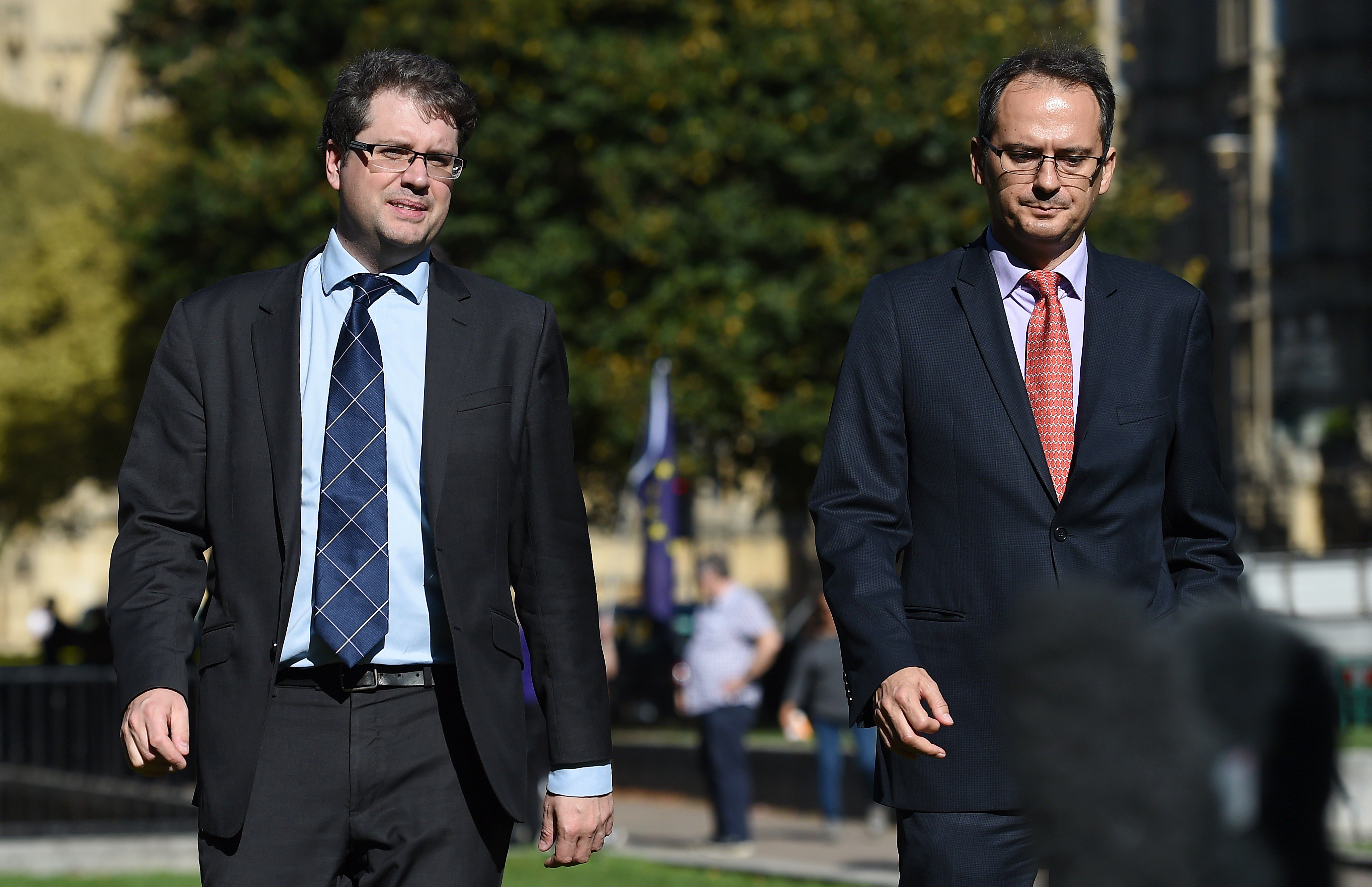IPI and its global network today denounce the continued legal intimidation by Russian authorities against Christo Grozev, the lead Russia investigator at Bellingcat, a Netherlands-based international investigative journalism collective.
On 21 April, legal pressure against Grozev in Russia escalated further when a district court in Moscow placed the journalist under arrest in absentia on the same day that the Ministry of Justice included him on Russia’s list of “foreign agents”.
The Bulgaria-born journalist is the first foreigner to be handed this status in Russia. Grozev used to live and work in the Austrian capital Vienna but was forced to leave the country earlier this year after receiving warnings about threats to his safety.
The court’s ruling echoed an earlier decision by the Russian Ministry of Interior, which in December placed Grozev on Russia’s ‘wanted’ list. This legal action stemmed from a single criminal case brought against the Bellingcat journalist, details of which were at the time neither made publicly available nor communicated to his lawyers in Russia.
Speaking to IPI, Grozev said the arrest warrant was issued on the basis that he had allegedly helped organize an illegal crossing of the Russian border, which can be considered a criminal offence under article 322.1 of the Russian criminal code and carries penalties of up to two years in prison.
According to Grozev, this likely referred to the assistance in fleeing Russia he had provided in 2021 to Roman Dobrokhotov, the founder and editor-in-chief of The Insider, an independent Russian investigative media.
Grozev believes that this assistance has now become a pretext to target him: “They were looking for a small shred of a crime”, he said, adding that the pressure against him by Russian authorities was in reality the “cumulative effect of six years of [Bellingcat’s] investigations.”
IPI Executive Director Frane Maroević said: “The decisions by Russian authorities to issue an arrest warrant and label Christo Grozev as a ‘foreign agent’ are aimed at intimidating and scaring Bellingcat journalists from continuing their groundbreaking investigations. Thanks to Christo Grozev and the Bellingcat team, we know the identities of those responsible for multiple heinous crimes that can be linked to Russia and other states. Their pioneering journalism has also supported criminal investigations and prosecutions.”
In recent years, Bellingcat investigators have published multiple major revelations, about the downing the downing of the MH17 plane over Eastern Ukraine, the poisonings of Russian opposition leader Alexey Navalny and of Sergey Skripal, a former Russian intelligence official residing in the United Kingdom, drawing the ire of the Kremlin and of Russian intelligence services.
Extra-judicial targeting of independent Russian journalists
More worrying than legal actions in Russia, which have little practical effect on journalists based abroad, are covert activities by Russian security services, especially within the EU’s Schengen area, Grozev told IPI.
“What we see with [my] indictment is just the legal vector of what Russian security services are doing”, he said. “There is also the extra-judicial [component], which is the reason why I left Austria. I received credible information from law enforcement that kill teams were sent after me by Russian security services.”
Grozev also warned that high profile public figures in Russia were being used by the security services to incite Russians living abroad to kill him and exiled Russian independent journalists, citing the influential ultra-nationalist Russian philosopher Aleksandr Dugin as an example.
In a social media post, Dugin recently wrote that “Christo Grozev should be brought to Russia in any way possible”, claiming that the journalist, who helped uncover foiled assassination attempts by Russia’s secret services, was the “key to a whole terrorist network […] systematically discrediting the Russian patriotic circle, which is fully loyal to the state.”
Concern over threats to exiled Russian journalists in Europe
Grozev told IPI that Russian security services had maintained a strong surveillance infrastructure in Austria and claimed that, according to his sources and information he received from prosecutors in Austria, some officers in the Austrian security services, BVT, had worked with Russia to surveil him.
In an earlier interview to the Financial Times, Grozev claimed that his personal data had “been accessed by a now ex-officer of [the] Austrian security service at the behest of Russian intelligence.”
More generally, the EU’s Schengen area creates an increased risk for exiled Russian journalists, as “kill teams can travel without detection from one country to another”, he said. As a result, independent Russian journalists are “no longer safe” in Europe, Grozev adds.
Bellingcat’s lead investigator warned that precautions were needed to protect exiled Russian journalists and stressed that authorities across Europe were not doing enough to address the situation. Commenting on his own case, he said he didn’t “know whether to be thankful to Austrian authorities for saying ‘stay out because they are after you’, or [notice] that they cannot protect people who are legal residents there”. The alarm must be raised on the physical safety of exiled Russian journalists based in Europe, Grozev concludes.
After Grozev left Austria due to risks to his safety, IPI reported the situation to the Council of Europe’s Platform for the safety of journalists. Austrian authorities provided the following response to the alert: “With regard to the subject matter, Austria would like to reiterate that the Austrian security authorities are aware of the facts mentioned. The responsible security services have taken the necessary steps and the measures deemed appropriate since the situation arose. For reasons of security, it is not possible to provide more detailed information.”
According to the Russian media Agentstvo, over 150 independent Russian journalists left their country in the first weeks following the start of Russia’s large-scale invasion of Ukraine and the enactment of harsh censorship laws banning what Russia claims to be “fake news” and “discreditation of the Russian army”. At least 1000 remain in exile as of February 2023, according to a recent report by the Net Freedoms (“Setevye Svobody”) project.
